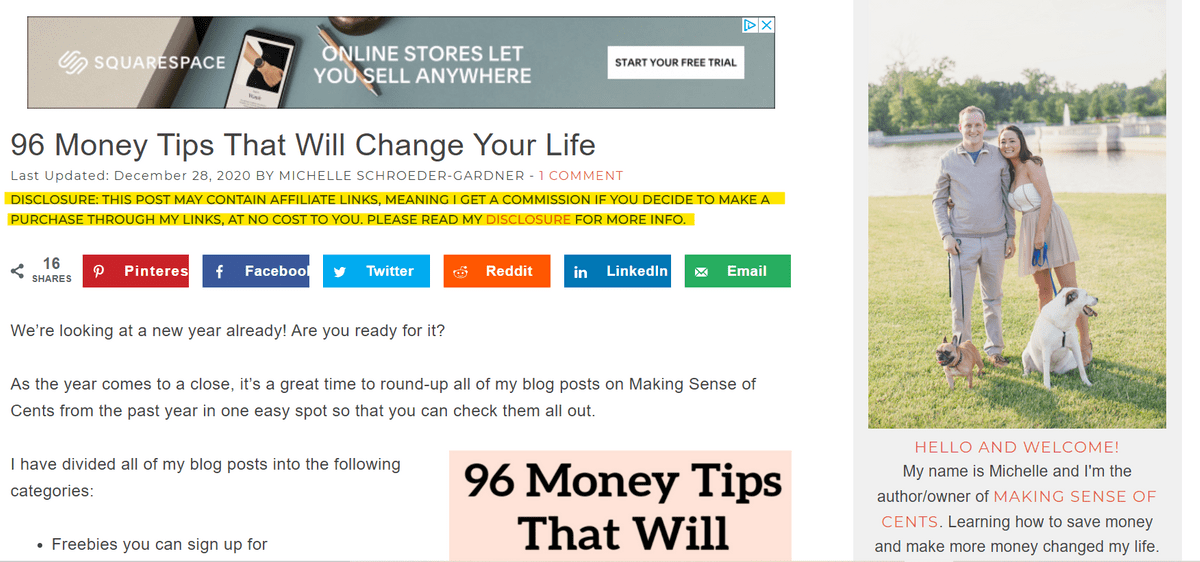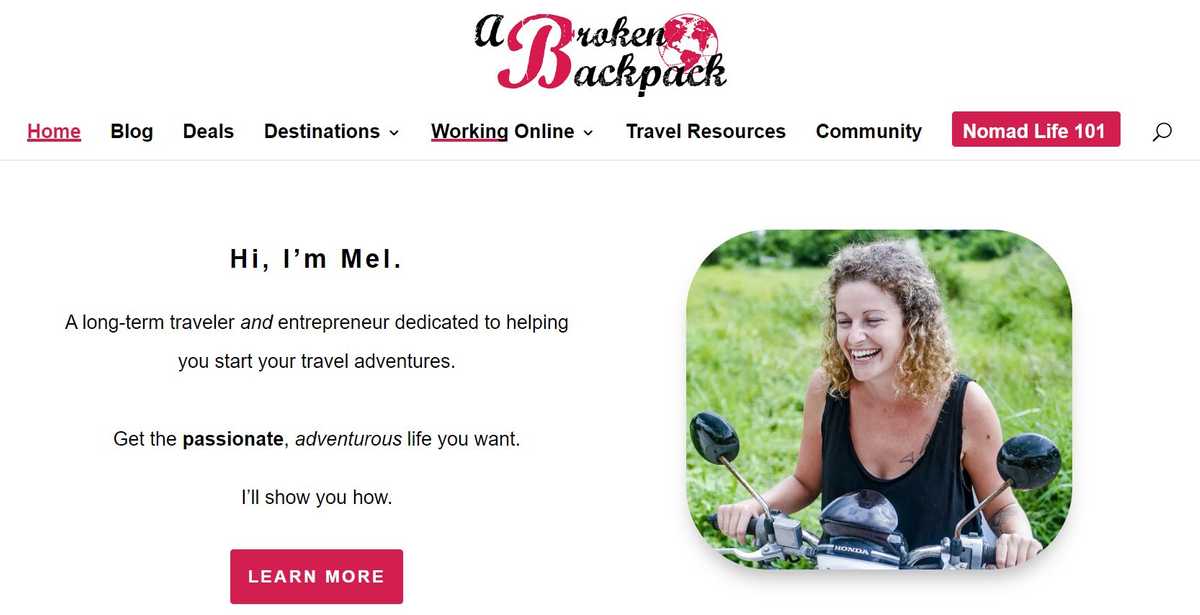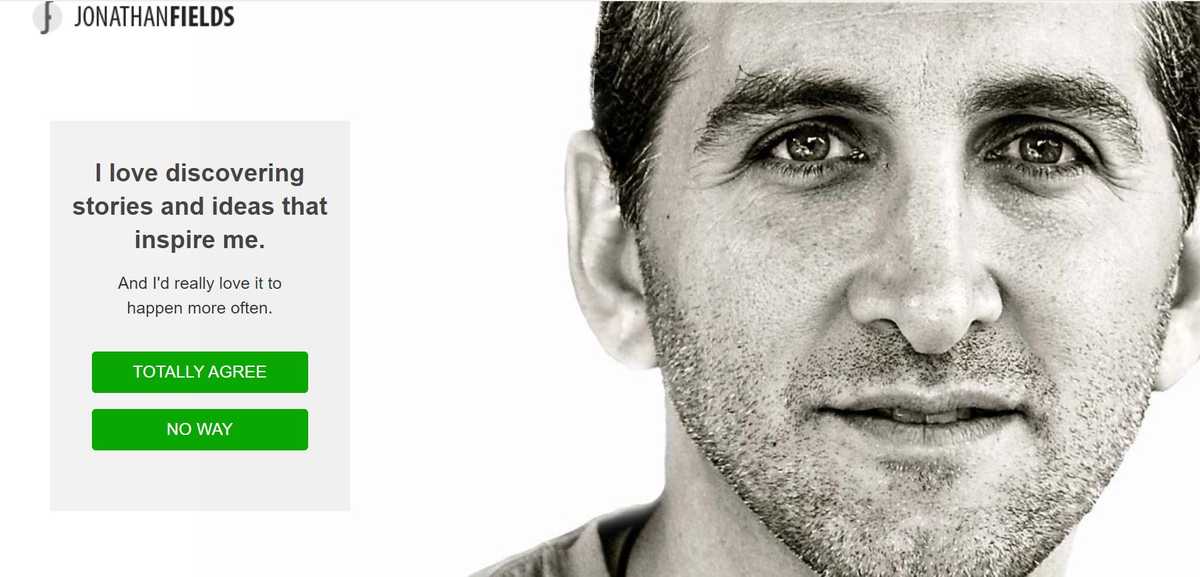How to disclose affiliate links: fun affiliate link disclosure examples
- Publication date
- Author
- Imogen Beech
- Reading time
- 7 minute read
Whether you’re looking to grow your business through partnering with affiliate marketers or to earn a passive income by promoting other businesses’ products, the whole thing centres around affiliate links.
Without them, affiliate marketing just wouldn’t work. There’d be no way of tracking which affiliates successfully generated business for their partner, and (worse still!) no way of compensating them. BUT an undisclosed affiliate link can be a legal nightmare.
Here, we’ll take a look at why affiliate link disclosure is so important, and reveal some fun examples to give you some inspiration.
Our partner intelligence and discovery platform can help you find thousands of relevant affiliate partnership opportunities in minutes.
First things first, if you’re making money with affiliate marketing, you’re legally required to disclose this information to your audience. The same goes if you're being compensated in any other way for making a recommendation. In the US, this is laid out in the Federal Trade Commission’s (FTC’s) guidelines, where it first appeared in 2009 (read our timeline of affiliate marketing to find out more). Meanwhile, in the UK, this is alluded to more generally as part of its consumer protection laws and in the non-broadcast code that’s upheld by the Advertising Standard Authority (ASA).
Ultimately, these laws are in place to protect consumers, who deserve to know whether they’re looking at an ad or a genuine recommendation. And yes, you can face legal penalties for misleading your customers!
But aside from that, let’s not underestimate how important trust is when it comes to building a long-lasting relationship with your audience. It's a common misconception amongst both seasoned affiliates and those looking to become an affiliate marketer that disclosing affiliate links will discourage consumers from clicking. But in reality, letting consumers know that you may make money if they click on your link fosters trust and transparency. It gives your readers a choice.
Affiliate marketer Jonathan Fields actually carried out an experiment where he provided his readers with two links – one was an affiliate link that would see him earn a commission for any purchases his readers made. The other was a plain link that would eliminate the possibility of him earning a penny. He made it clear which was which and then tracked how many people clicked on each link.
Interestingly, 76% of his readers chose the affiliate link, giving him a chance of benefiting financially. Just 24% chose the non-affiliate link. So, as you can see, even when given a choice, the majority of people aren’t put off by knowing that somebody will be benefiting financially from their actions.
Okay, so there are a few best practices for affiliate link disclosure. They’re not rocket science by any means, but by following them, you’ll not only ensure you’re complying with the law. You’ll also help to increase transparency with your readers, which can only be a good thing.
Don’t hide your link disclosure in your site footer or somewhere where your readers are unlikely to see it. Instead, put it somewhere it can’t be missed, such as at the top of the page, next to each affiliate link or both.
The ASA writes in its guidance: ‘A disclaimer of this nature at the bottom of... a post is unlikely to be sufficient because there is the potential that the links and any “directly connected” claims would not be considered obviously identifiable as advertising at the time they are encountered by the reader.”
Michelle from Making Sense of Cents is a great example of someone doing things right. She places this disclosure at the top of every blog post: ‘Disclosure: This post may contain affiliate links, meaning I get a commission if you decide to make a purchase through my links, at no cost to you.’

If you’re wondering ‘do I need to disclose this link?’ then the answer is probably yes. It’s much better to over-disclose than under-disclose. In general, you should disclose whenever you’ve been compensated by the brand you’re linking to. This includes sponsorships and paid reviews as well as straight-up affiliate agreements.
There’s no point in disclosing a link if your reader has no idea what you’re talking about. So, avoid using jargon that your reader might not understand, like ‘affiliate’ or ‘pay-per-click’ – unless you take the time to explain what they mean, of course!
Instead, focus on disclosing your links in a way that’s quick and easy for readers to get their heads around. In its endorsement guides, the FTC uses this as an example: ‘I get commissions for purchases made through links in this post.’ It’s nothing fancy, but it certainly does the job!
There’s no reason why you can’t stick to best practices and have a little fun at the same time! In fact, the FTC wrote in a press release that: ‘Advertisers have the flexibility to be creative in designing their ads, as long as the necessary information is communicated effectively and the overall message conveyed to consumers is not misleading.’
With that in mind, we’ve laid out some affiliate disclosure examples that achieve both to give you some ideas.

Melissa Giroux uses affiliate marketing to make money from her travel blog, A Broken Backpack. She places disclosures in a number of places on the site, but our favourite is on the disclaimer and privacy policy page.
She writes: ‘If you click on my affiliates/advertisers links, I am going to receive a tiny commission. AND… Most of the time, you will receive an offer. Win/Win! The products that I advertise are the ones I believe in.’
We just love how packed with personality this disclosure is. It doesn’t sound like legal-speak at all. Instead, it fits in perfectly with the tone of voice she uses across the rest of her site. Plus, it makes her use of affiliate links sound like a real benefit to her readers. Our guess is that after reading that, no-one’s complaining!

If you’re toying with the idea of using humour in your affiliate link disclosures, there’s a lot to be learned from Jonathan Fields. We stumbled across this one in his blog post ‘Why I drool every time Forleo Launches’:
‘[FTC Disclosure (because being transparent should be fun, dammit!) – You should always assume that pretty much every link on this blog is an affiliate link and that if you click it, find something you like and get it, I’m gonna make some serious money. Now, understand this, I’m not talking chump change, I’m talking a huge windfall in commissions, bling up the wazoo and all sorts of other free stuff. I may even be given a mansion and a yacht, though honestly I’d settle most of the time for some organic dark chocolate and clean socks. Oh, look, a squirrel…. K, I’m back. And if I mention a book or some other product, just assume I got a review copy of it gratis and that me getting it has completely biased everything I say. Because schwag is like a drug to me, put it in my hand and you own me, you’ve been warned (disclosure to the disclosure, that was a joke, or was it?). Huggies and butterflies. Oooooh, shiny…]'
Have you ever seen such a confident affiliate link disclosure?! Rather than hiding the compensation he receives, he puts it centre stage, assuming the reader’s going to be fine with it.
Arguably, a more succinct version might be better for clarity (and he does use a much more straightforward disclaimer in other, more visible parts of his site). But love it or hate it, you can’t beat him for humour and originality!

Missy Ward is the CEO and co-founder of Affiliate Summit, so it makes sense that she embraces the use of affiliate links on her own blog.
Each blog post on her site is preceded by the announcement: ‘Disclosure: If I'm not making money through affiliate links on the post you're currently reading, it's an oversight on my part and will be corrected soon.’
Rather than apologising for her affiliate links, she turns things on their head and makes any lack of affiliate links the problem. As her blogs are aimed at helping others to make money through affiliate marketing, it seems completely fitting that she would announce her links with such pride
Although we’ve focused for the most part on disclosing links on affiliate websites, you’ll also have to disclose your links if you make money affiliate marketing on Instagram, Facebook, Pinterest or anywhere else. So, are there any differences in how you should disclose links on social media?
Well, the principles are the same. But the ASA states: ‘Affiliates using social media should be aware of the technical quirks of each platform they use and at what opportunity they should identify something as an ad.’ Essentially, because each platform is different, there are some nuances you should bear in mind.
Firstly, you’ll usually have fewer characters to play with on social media – especially if you’re using platforms like Twitter or Instagram stories.
For this reason, you’re not expected to use a full disclaimer that goes into the nitty-gritty of how you’re being compensated. Instead, you can mark them using hashtags like #ad, #affiliatelink or #sponsored (for sponsored posts). Or, you could write something short and snappy, like ‘this is an affiliate link.’ Just make sure that it’s visible, rather than hidden amongst 20 other hashtags at the bottom of your post!
The other thing to be aware of if you're making money as an affiliate without a website is that you should disclose your link in the same way that you share it. For example, if you include an affiliate link in a YouTube video, you should disclose the link in the video (even if you just do so verbally), rather than putting a disclosure in the description box.
It makes sense when you think about it: when you embed or share a YouTube video, the description box often won’t be visible. And what’s the point in having a disclaimer if no-one can see it?
In the same way, if you share an affiliate link in the description box, that’s where the disclosure goes. Got it?!
Remember, there’s no harm in over-disclosing, so if in doubt, disclose, disclose, disclose!
--
All that’s left to say as far as we’re concerned is: ‘DISCLOSE YOUR AFFILIATE LINKS!’ Not only is it a legal requirement but, let’s face it, it’s just the right thing to do. And who doesn’t want to do right by their readers?
Whether you’re a publisher on the hunt for brand partners, or a brand in search of affiliates, you’re in the right place. Just book a demo for Breezy to learn how our partner search engine can give you hundreds of partner suggestions tailored to your needs.
Discover relevant partners and uncover their contact details quickly and easily with Breezy.
Imogen is a copywriter and content writer with over two years’ experience writing about the exciting world of strategic partnerships, as well as running her own business. She loves learning about new topics as she writes, and has enjoyed penning articles on industries ranging from mortgages to events, theatre to home improvements and everything in between.
View more by Imogen Beech